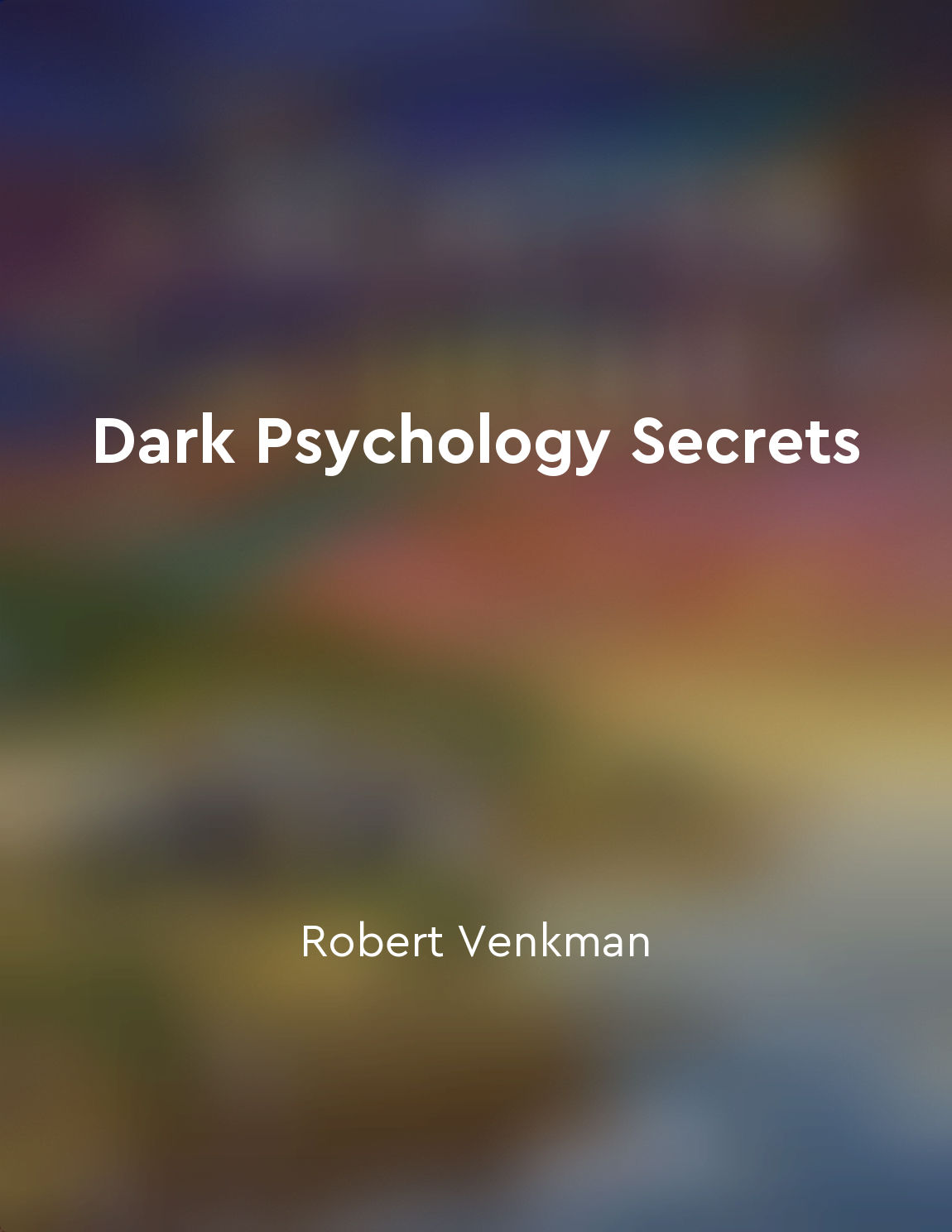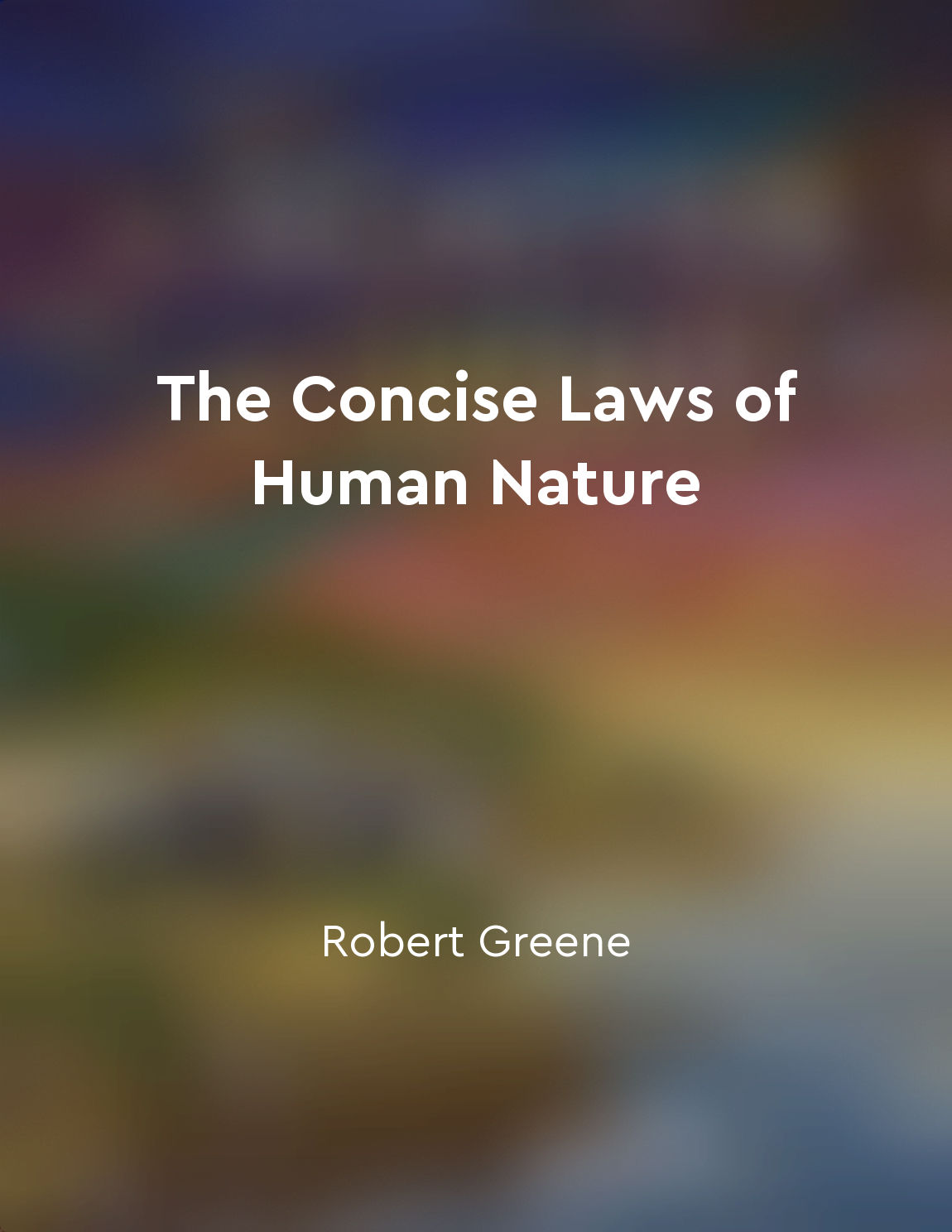Audio available in app
The science of evil offers insights into human nature from "summary" of The Science of Evil by Simon Baron-Cohen
Evil is a word that often provokes strong emotions and moral judgments. It is a label we use to separate those who engage in harmful actions from the rest of society. But what if we could move beyond moral outrage and delve deeper into understanding the roots of evil behavior? This is the goal of the science of evil - to explore the psychological and neurobiological factors that contribute to cruel and destructive acts. By studying the science of evil, we can gain valuable insights into the complexities of human nature. Rather than dismissing evil as simply a product of inherent wickedness, we can start to see it as a complex interplay of genetic, environmental, and cognitive factors. This shift in perspective allows us to move away from oversimplified notions of good and evil, and towards a more nuanced understanding of human behavior. One key aspect of the science of evil is the examination of empathy - or lack thereof. Empathy is the ability to understand and share the feelings of others, and it plays a crucial role in shaping our moral compass. Individuals who lack empathy may be more prone to engaging in harmful behavior, as they are less able to connect with the suffering of others. By studying empathy and its neural correlates, we can start to unravel the mechanisms that underlie cruel and callous actions. Another important aspect of the science of evil is the exploration of social and environmental influences. Factors such as childhood trauma, societal norms, and cultural attitudes can all contribute to the development of antisocial behavior. By examining these influences in a scientific manner, we can gain a better understanding of how individuals can be led down a path towards evil acts.- The science of evil offers a compelling framework for understanding the darker aspects of human nature. By approaching evil from a scientific perspective, we can move beyond simplistic moral judgments and towards a more nuanced understanding of the complexities of human behavior. Through research and analysis, we can gain valuable insights into the roots of evil, and perhaps even find ways to prevent it in the future.
Similar Posts
Man is a complex being
Man is not a simple being. His nature is intricate and mysterious. His body is composed of numerous cells, tissues, and organs ...
Cultivate empathy to understand different perspectives
To truly understand others, you must cultivate empathy. This means putting yourself in their shoes and seeing the world from th...
The relationship between psychopathy and intelligence is complex
The intersection between psychopathy and intelligence is a topic that has intrigued researchers for many years. It is widely ac...

Identifying deception
Identifying deception is a crucial skill in navigating the complex world of human interactions. It involves being able to recog...

Learn how to set boundaries with manipulative individuals
Setting boundaries with manipulative individuals is a crucial skill that can help protect your emotional well-being and prevent...
Empathy can be learned and nurtured over time
Elizabeth A. Segal posits that empathy is not an innate trait that one is born with. Rather, it is a skill that can be honed an...

Learning to control our impulses can lead to greater overall success
Our impulses are like wild horses, pulling us in all directions without any thought for the consequences. They can lead us astr...
Setting boundaries is essential in protecting oneself
Establishing clear boundaries is a crucial aspect of safeguarding oneself from potential harm in various aspects of life. By cl...

